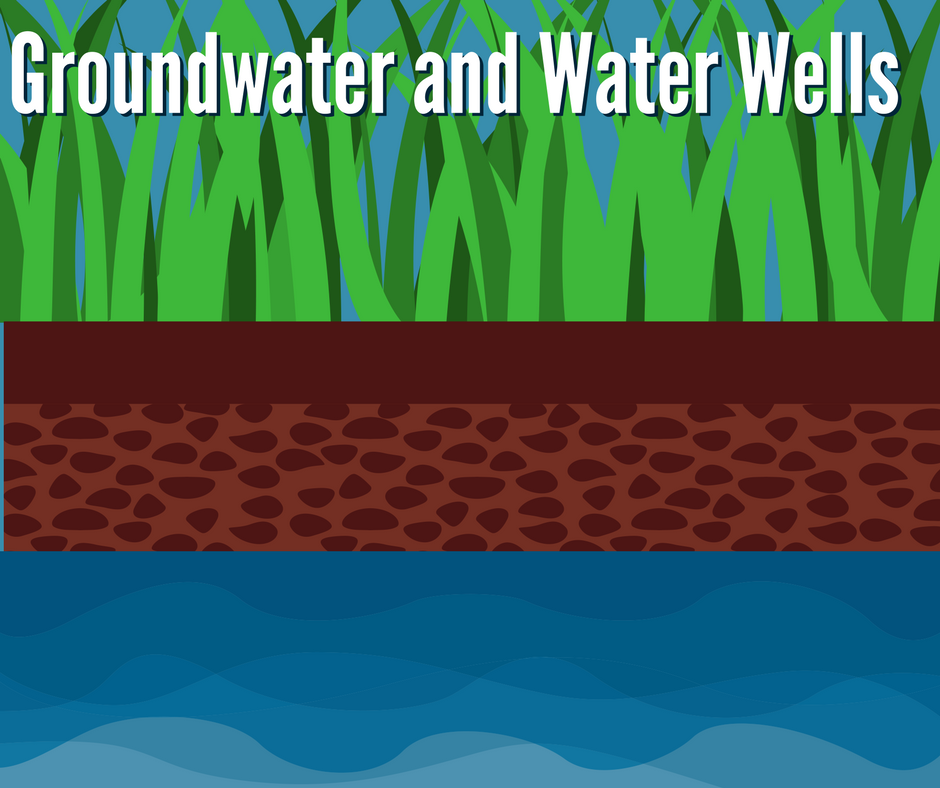Your Water Well and Groundwater - Where Water Comes From
Information on Groundwater and Water Wells
Groundwater is the source of drinking water for more than 50 percent of the population of the United States and includes both private wells and municipal water systems. It's a reliable, renewable resource for clean pure drinking water.
When accessed from deep drilled wells, groundwater is naturally filtered, cleaner and less likely to become contaminated than the surface water found in rivers and lakes. Deeply drilled wells can recharge themselves and will provide clean plentiful water, even during extended periods of dry weather.
So where does your well water come from? Let's examine the water cycle and how groundwater gets replenished to give us plenty of drinking water from our water wells.
So What Exactly is Groundwater?
Thirty-percent of the planet's fresh water is stored below ground. It is purified and filtered as is passes through layers of soil and rock. Groundwater stores are called aquifers, which are layers of soil, sand, and rock, but comes to the surface naturally from springs, artesian wells, or can be brought to the surface via a drilled, or dug well. Over 43 million Americans depend on private drinking wells to provide their drinking water.
The Water Cycle
Freshwater is constantly moving. It falls as rain, is stored in ice and snow, which when it melts is absorbed by the ground and is filtered through the soil and rocks as it makes its way back to underground aquifers. Water can changes states from solid (ice and snow) to liquid, to vapor at various points throughout this cycle.
When water falls as rain, snow or hail, it collects as surface water. As surface water is absorbed it becomes groundwater. Groundwater flows slowly underground eventually making its way back to the surface through various means where it then evaporates and the water cycle repeats again.
The Importance of Groundwater
We depend on groundwater to maintain our way of life. Consider these facts:
- Groundwater supplies drinking water for 51% of the total U.S. population and of this number, 99% of the rural population
- 64% of groundwater is used as irrigation to grow our food
- Groundwater is the recharge source for wetlands, rivers and lakes
Protecting groundwater supplies is vital to the health and well being of all of us. As a homeowner with a private well there are steps you can take as an individual that can benefit us all. Start by maintaining your well. Keep household chemicals a safe distance away from your well and never pour chemicals onto the ground to dispose of them. Recycle your motor oil. Limit the use of pesticides and fertilizers which can leach into groundwater due to heavy rains.
Keep the area around your well cap clear of debris like leaves, mulch, or snow and be extremely careful when mowing to avoid damaging the well casing. Finally, even though your well can meet all of your water needs, it's important to conserve water to protect our groundwater resources.
If you'd like more information on groundwater conservation, treatment options for contaminants, or way to help conserve water, give the Experts at Skillings & Sons a call. We can answer your questions or direct you to further sources of information. We understand the importance of protecting our groundwater resource, take the job seriously, and are always happy to answer your questions!

